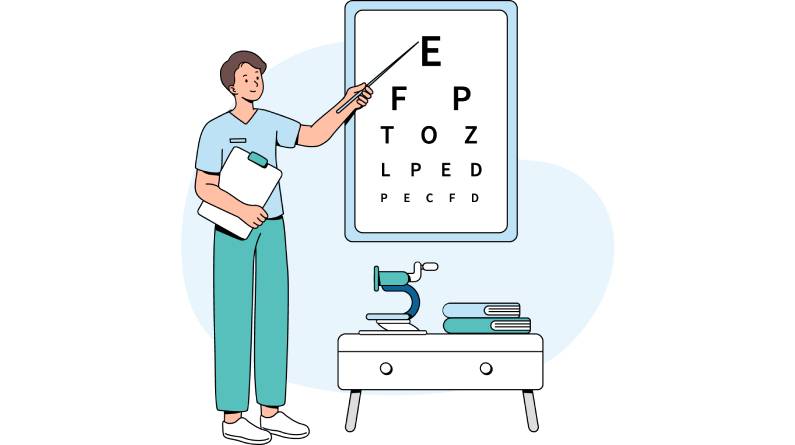The Importance of Dilated Pupils in Eye Testing
When you visit an eye doctor for a routine checkup, they’ll likely administer eye drops to dilate your pupils. But why is this necessary? In this article, we’ll explore the importance of dilated pupils in eye testing and what conditions can be diagnosed with this method.
Why Dilate Pupils?
Dilating pupils allows the doctor to see the inner parts of the eye more clearly. This is especially important for identifying, preventing, and treating conditions that affect the optic nerve and retina. When the pupils are dilated, the doctor can:
1. Examine the Optic Nerve: Check for signs of damage or disease.
2. Inspect the Retina: Look for signs of retinal detachment, tears, or other conditions.
3. Check for Macular Degeneration: Examine the macula, the part of the retina responsible for central vision.
The Process of Dilation
The doctor will administer eye drops containing medications like cyclopentolate, tropicamide, or phenylephrine. These drops work by relaxing the muscles that control the shape of the lens, allowing the pupils to dilate. It typically takes 15-30 minutes for the pupils to fully dilate.
What to Expect After Dilation
After the dilation, you may experience:
1. Blurred Vision: This can last for 4-6 hours.
2. Sensitivity to Light: Your eyes may be more sensitive to bright light.
3. Temporary Stinging: Some people may experience temporary stinging or discomfort in the eyes.
Conditions Diagnosed with Dilated Eyes
Dilated eye exams can help diagnose conditions such as:
1. Glaucoma: A group of eye conditions that can damage the optic nerve.
2. Macular Degeneration: A condition that affects the macula, leading to central vision loss.
3. Diabetic Retinopathy: A complication of diabetes that can damage the blood vessels in the retina.
4. Retinal Detachment: A condition where the retina separates from the back of the eye.
Frequency of Dilated Eye Exams
The American Academy of Ophthalmology recommends a comprehensive eye exam with dilation every 1-3 years for adults under 50. For those over 50, annual exams are recommended. However, if you have a family history of eye diseases or other risk factors, your doctor may recommend more frequent exams.
Conclusion
Dilated pupils play a crucial role in eye testing, allowing doctors to examine the inner parts of the eye and diagnose conditions that can affect vision. While dilation may cause temporary discomfort, it’s a necessary step in maintaining eye health.
References:
https://www.brightfocus.org/glaucoma/article/dilated-eye-exam-why-its-so-important
https://www.mayoclinic.org/tests-procedures/eye-exam/expert-answers/eye-dilation/faq-20057882

